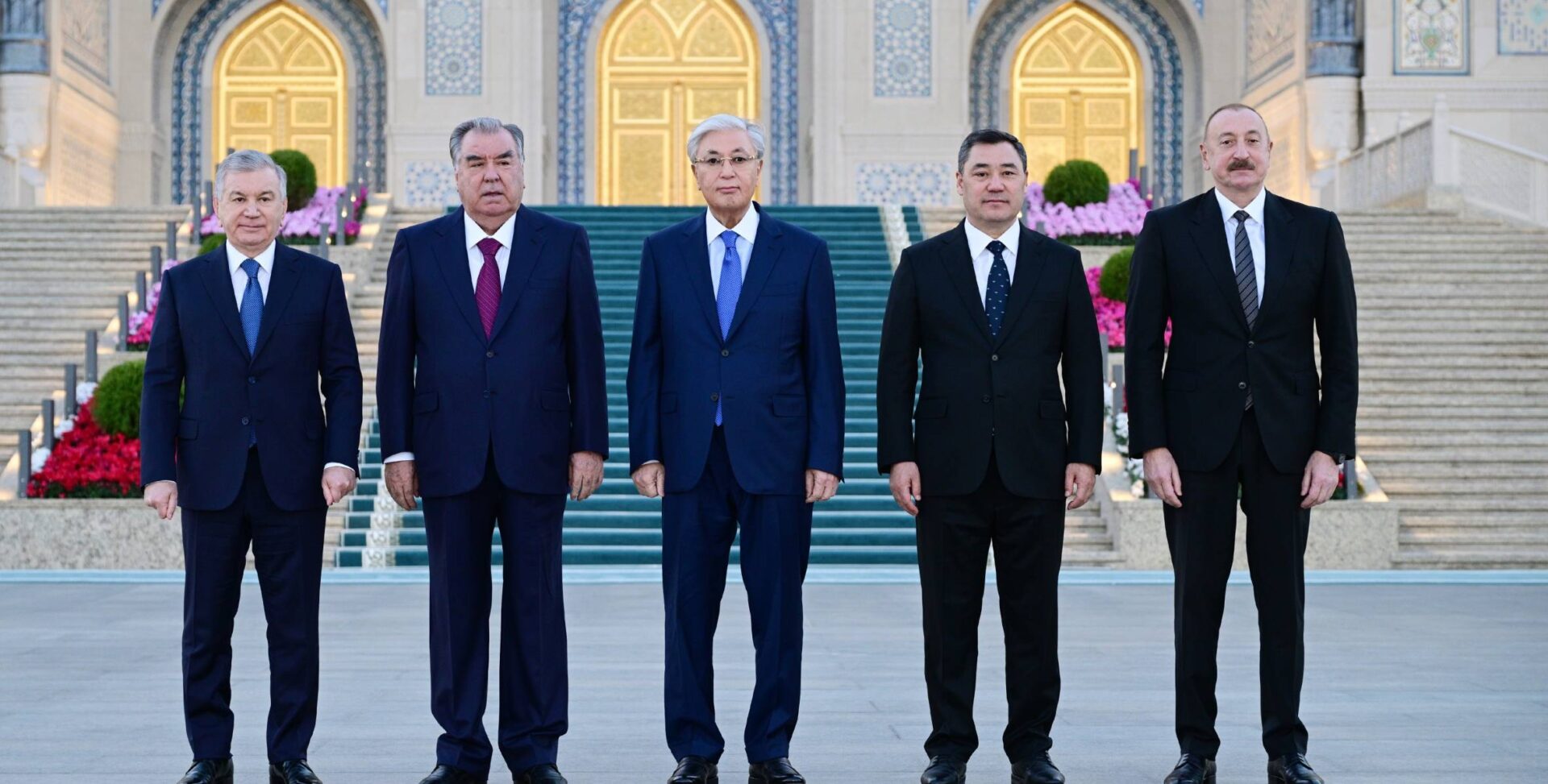
Azerbaijan Attempts Pragmatic Diplomacy at SCO Summit
Azerbaijan Attempts Pragmatic Diplomacy at SCO Summit
Executive Summary:
- Azerbaijani President Ilham Aliyev’s visit to Beijing for the Shanghai Cooperation Organization (SCO) summit on August 31–September 1 emphasizes Baku’s recent push for the formation of a multivector diplomatic position.
- Baku seeks deeper SCO engagement to boost the Middle Corridor, but India appears to have blocked Azerbaijan’s membership bid, and intra-bloc rivalries—especially India-Pakistan—undercut the SCO’s ambitions.
- Azerbaijan’s recent initiatives and progress in the development of transport routes have underlined its strategy of balancing relations with regional and global powers through partnerships with platforms such as the SCO.
On August 30, Azerbaijani President Ilham Aliyev arrived in the People’s Republic of China (PRC) to attend the 25th Meeting of the Council of Heads of State of the Shanghai Cooperation Organization (SCO) in Tianjin (President of Azerbaijan; Azertag, August 30). Azerbaijan holds the status of a “dialogue partner” of the SCO, but is not a full member. Aliyev’s attendance at the PRC-led SCO summit came amid simmering tensions between Azerbaijan and Russia, followed by mutual accusations and bellicose rhetoric of the Russian conservative establishment against Azerbaijan (OC Media, August 12; see EDM July 7, September 9). In the face of Moscow’s open accusations and attempts to pressure Azerbaijan through frequent police raids against the local Azerbaijani diaspora, Baku is actively building alternative partnership formats in the Caucasus, Central Asia, and beyond (see EDM, April 23, 24, May 1, 7, July 17, September 10).
Since the beginning of 2025, Azerbaijan has significantly boosted its partnerships outside the Caucasus and Russia (AIR Center; April 30; JAM News, August 9). The recent breakthrough in Azerbaijan’s diplomacy paved the way for establishing a strategic partnership with the PRC, which was cemented in an April agreement (AZE.az, September 2). Amid geopolitical uncertainties, Azerbaijan has eyed deeper engagement with leading global actors, such as the PRC, through individual partnerships and the SCO platform. In the last decade, Azerbaijan, along with Türkiye, has attended SCO meetings as dialogue partners while seeking full membership as an alternative to Western-led formats (Anadolu Agency, September 2). Ankara has reiterated during these years that the SCO membership would not be considered an alternative to North Atlantic Treaty Organization (NATO) membership, but Baku approached the membership issue as a viable option for diversifying its partnership portfolio (Daily Sabah, September 1). Baku and Ankara’s vision regarding SCO membership differs slightly, but both Aliyev and Turkish President Recep Tayyip Erdoğan acknowledge the PRC’s leading position within the organization, underscoring its decisive role.
The PRC aims to cast itself as the standard-bearer of a multipolar world by boosting the SCO’s influence, challenging the Western international liberal order (see China Brief, September 5). Beijing has clearly been attempting to capitalize on the Trump administration’s “maximum pressure” approach toward U.S. trade partners in Asia, enabling the PRC to expand its diplomatic influence and strengthen bilateral ties with regional states and beyond.
Azerbaijan and Türkiye appear keen to engage with the SCO community to boost the role of the Middle Corridor (or Trans-Caspian International Transport Route, TITR), as mentioned by Aliyev during his speech at the summit (President of Azerbaijan, September 1). Aliyev claimed, however, that Azerbaijan’s quest for SCO membership in Tianjin was allegedly blocked by India due to the former’s vocal support for Pakistan (President of Azerbaijan; Daily Sabah, September 1; Eurasianet, September 3). Additionally, the current diplomatic rifts between Moscow and Baku also suggest that Russia may have been a factor in Azerbaijan’s failed SCO membership bid in Tianjin (Aze.media, September 2). Russia has not hidden its frustration with Azerbaijan’s critical stance toward Moscow and its efforts to establish alternative geopolitical alliances in the West and Central Asia, thus moving away from Russian orbit.
Currently, intensive dialogue with the SCO aligns with Azerbaijan’s pragmatic foreign policy, which has adapted to the new geopolitical realities in the South Caucasus following the 2020 Second Karabakh War. This engagement contributes to Azerbaijan’s increasing status as a regional “Middle Power” (Caucasus Strategic Perspectives, Summer 2025). For the SCO, however, ongoing tensions between Baku and Moscow present additional obstacles to its emergence as a major interregional bloc. Azerbaijan’s key position in the International North-South Trade Corridor linking India, Iran, and Russia, and the Middle Corridor linking Europe to the PRC, makes it central to major trade networks in the region shaping the coming decades (Eurasianet, June 24, 2024; see EDM, May 8, October 28, 2024, April 23, May 1).
The connectivity issue is atop the agenda of Türkiye and Azerbaijan as both countries seek the full operation of the Middle Corridor, which will further link with the long-awaited Zangezur Corridor—recently renamed the Trump Route of International Peace and Prosperity (TRIPP) in the August 8 Washington declaration—through Armenia’s Syunik province to Azerbaijan’s Nakhchivan exclave (see EDM, August 12, September 11; Infra. Com, September 5). Given the geographical position of the TRIPP in contributing to increasing annual transportation volume from the PRC to Europe via the Middle Corridor, Turkish and Azerbaijani officials have actively promoted the land corridor issue in recent years on various platforms, including the SCO. Ankara and Baku highlight the economic benefits for the region. On August 22, Türkiye broke ground on a railway connection from its northeastern Kars province to Azerbaijan’s Nakhchivan exclave as part of the Kars-Iğdır-Aralık-Dilucu railway line (Daily Sabah, August 22). Azerbaijan’s recent initiatives have underlined its strategy of balancing relations with regional and global powers through partnerships with platforms such as the SCO.

